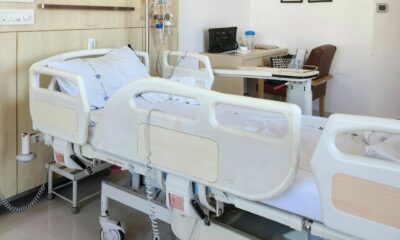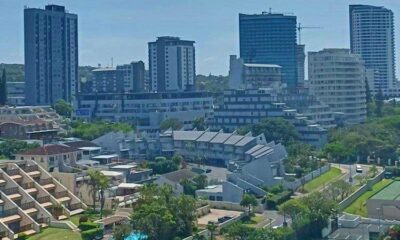News
South Africans Paid R43 Billion Out-of-Pocket for Medical Care in 2024, Regulator Warns of Widening Inequality

Why medical aid members are still footing massive bills despite paying premiums
For millions of South Africans, paying medical aid premiums every month feels like buying peace of mind. But in 2024, that peace came at a steep extra price. New figures show that members still forked out R43 billion in upfront, out-of-pocket medical expenses, raising tough questions about what their benefits really cover.
The Council for Medical Schemes (CMS), which regulates the industry, has warned that the current system is worsening health inequalities and leaving vulnerable groups, from pensioners to cancer patients, exposed.
The problem with hospital-heavy benefits
At the heart of the issue is how medical schemes are designed. CMS chief executive and registrar Dr Musa Gumede, addressing the National Council of Provinces, said benefit packages remain “hospice-centric,” meaning they favour hospital care over primary healthcare, prevention, and screening.
That imbalance, he argued, drives higher costs in the long run. Without easy access to vaccines, contraception, or routine check-ups, people are more likely to delay treatment until illnesses become severe. For underserved communities, where clinics are scarce and travel is costly, this often means late detection and higher bills.
“The current benefit designs are focused on hospitals and not on primary healthcare. And that’s what we’re trying to change,” Gumede told lawmakers.
What South Africans are paying for
The CMS’s 2023/24 report broke down the R43bn in out-of-pocket payments:
-
Medicines made up the largest share at 35%
-
Specialists followed at 28%
-
Allied health professionals such as physios and dieticians claimed 14%
-
GP visits accounted for 9%
-
The remaining 14% went to other health disciplines
Why so much? Gumede explained that members often face tariff “gaps” when doctors charge above scheme rates, or when certain treatments are excluded entirely. Sometimes, the nearest in-network doctor or hospital is too far, forcing members to use alternative providers and absorb the cost.
The vulnerable carry the heaviest load
The regulator also warned that the way schemes are structured undermines solidarity between young and old, healthy and sick.
Cheaper products often attract younger members, leaving pools dominated by the elderly or chronically ill and premiums in those schemes skyrocket. That cycle, Gumede said, makes care even less affordable for people who need it most.
“Our aim is to try and get solidarity-based financial protection,” he said, stressing that the elderly, cancer patients, and those with mental illness are currently the most at risk of being priced out of coverage.
Calls for urgent reform
To close the gaps, CMS is pushing to update Prescribed Minimum Benefits (PMBs) the list of treatments that medical aids are legally required to cover. Gumede wants contraceptives, vaccines, and preventative screenings added, arguing that modern healthcare must shift from crisis response to prevention.
The regulator is also stepping up efforts to keep medical aids affordable, including issuing contribution increase guidelines and boosting transparency so members know exactly what they’re covered for.
Why this matters for ordinary South Africans
The numbers are eye-watering, but the impact is deeply personal. On social media, many South Africans reacted with frustration, sharing stories of paying thousands on top of their premiums for basic medicines or specialist visits.
Healthcare inequality isn’t new in South Africa, but with unemployment, inflation, and high import tariffs already squeezing households, the additional R43bn paid out of pocket is a reminder that access to healthcare is still skewed by income.
Unless medical aid packages shift to include more preventative and primary care, the regulator warns, South Africans will keep paying the price, not only in rands, but in avoidable illness and late diagnoses.
{Source: The Citizen}
Follow Joburg ETC on Facebook, Twitter , TikTok and Instagram
For more News in Johannesburg, visit joburgetc.com



























